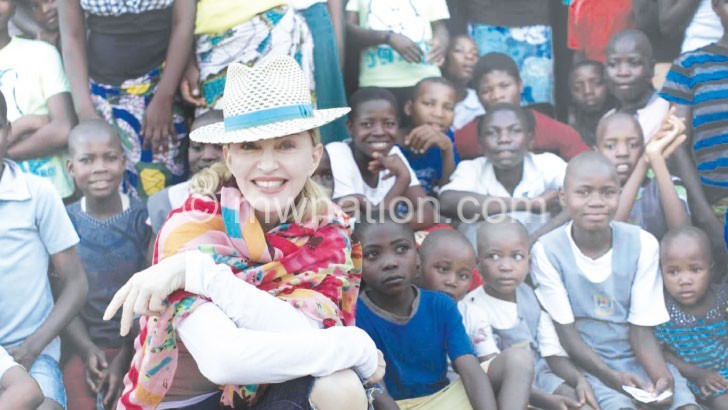Extended family on trial
Call him John Phiri to conceal his identity. The troubled childhood of the young man, who spent 18 years in an orphanage as a boy, still exposes him to stigma.
His mother died when he was six weeks old and his father followed a year later.
Little John and his four siblings were uprooted from their clan as their kindred put them in separate orphanages with no follow-up visits.
The stint exposed them to ridicule from their peers.

“In school, children from the orphanage were being treated as second-class people. We were branded as orphans. Our friends rarely called us by our names,” he says.
Their upbringing personifies the dilemma of thousands of orphans in Malawi.
As extended family ties snap and struggle to absorb parentless children, orphanages are said to be no safe homes either.
The establishments stand accused of delinking children such as John from their families and hurting their growth.
Government’s policy for orphans and vulnerable children recognises numerous hardships faced by these needy young Malawians.
According to the policy, family care remains a priority over orphan care establishments.
The policymakers recommend that institutional care should be a last resort—and for the shortest possible time.
The stance is in line with the United Nations (UN) Guidelines on Alternative Care, which encourage governments to strengthen the capacity of families to ensure every child grows in a safe environment and reaches their potential.
Most children in the country’s institutional care have at least one biological parent, notes the UN Children’s Fund (Unicef) head of child protection Afrooz Kaviani-Johnson.
“This is a great opportunity for promoting family care of children,” she says.
Kaviani-Johnson argues that in the case no parents are alive or where it is unsafe for a child to be in the care of their parents, other family-based options—including kinship or foster care—should be considered.
“Children have the right to be brought up by their parents,” she states. “Family care promotes the best interests of the child and positive outcomes in child devel-opment in contrast with institutional care.”
She reckons children raised in a family setting are more likely to be adequately nurtured, stimulated and protected.
“There is a large body of evidence which documents the negative and irreversible effects of institutional care on children’s development, especially during their first three to five years of life,” she explains.
Unicef reports that between 2009 and 2014, Malawi has experienced a 60 percent surge in the numbers of children in institutional care.
Kavian-Johnson called for behavioural change at all levels, from families and community leadership, to understand the dangers of placing children in institu-tional care.
However, mindset change does not happen overnight—for it takes a lot of time for people to unlearn deep-rooted beliefs and socio-cultural norms.
“This remains a big challenge in preventing children from entering and remaining in institutional care,” Kaviani-Johnson.
Ministry of Gender, Children, Disability and Social Welfare spokesperson Lucy Bendazi concurs.
She traced the origins of orphanages, saying child care institutions in the country were born out of necessity.
There was need to ensure that the 1.8 million vulnerable children in need of alter-native care grow and develop into useful and productive citizens, she says.
“The childcare institutions have done a tremendous job in providing the much-needed care to vulnerable children across the country. Despite the good work, it is distressing that most of the children in these institutions have parents and close relatives who can ably take care of them,” she said.
This could be symptomatic of a silent breakdown of the extended family system where families felt duty-bound to foster children left by their dead relatives.
Family ties were strained by HIV infections, discovered in 1985.
According to the National Aids Commission (NAC), nearly 99 000 people died of Aids in 2004 when government rolled out universal access to life-prolonging drugs. Then, coffin workshops mushroomed in every corner to cash in on rising death.
This year, UNAids reported that Aids-related deaths have declined to 17 000 a year due to expanded access to antiretroviral treatment.
The population of childcare institutions in the country has surged from eight in 2005 to about 170 currently, the line ministry reports.
“There are about 10 000 children in these institutions. The visits also revealed that the children are not allowed to be visited by guardians. Cases of child abuse sometimes perpetrated by the owners of the institutions are on the rise,” says Bendazi.
To strengthen child-friendly care services, government is reviewing the adoption laws and finalising guidelines for alternative.
Two years ago, the line ministry started reintegrating children from institutions with their families.
“Over 200 children have been reintegrated for the past two years,” says Bendazi.
But Step Kids Awareness (Steka) executive director Godknows Maseko said the re-integration process is good because every child needs to grow up with a fami-ly.
His organisation is home to about 70 children, including street kids, abandoned ones and orphans.
He urges government to handle the situation to ensure children do not return to a harsher and more constrained home when reunited with their families.
He states: “There should be a thorough assessment to ensure that the children go back to school and are protected. The welfare office did not involve us in a home assessment.
“They simply gave us a report and names of children who had to go back to their families. They had no answers when we asked them: Which schools they would go to? How far the schools are are from their homes? Who will support the children?” said Maseko.n





